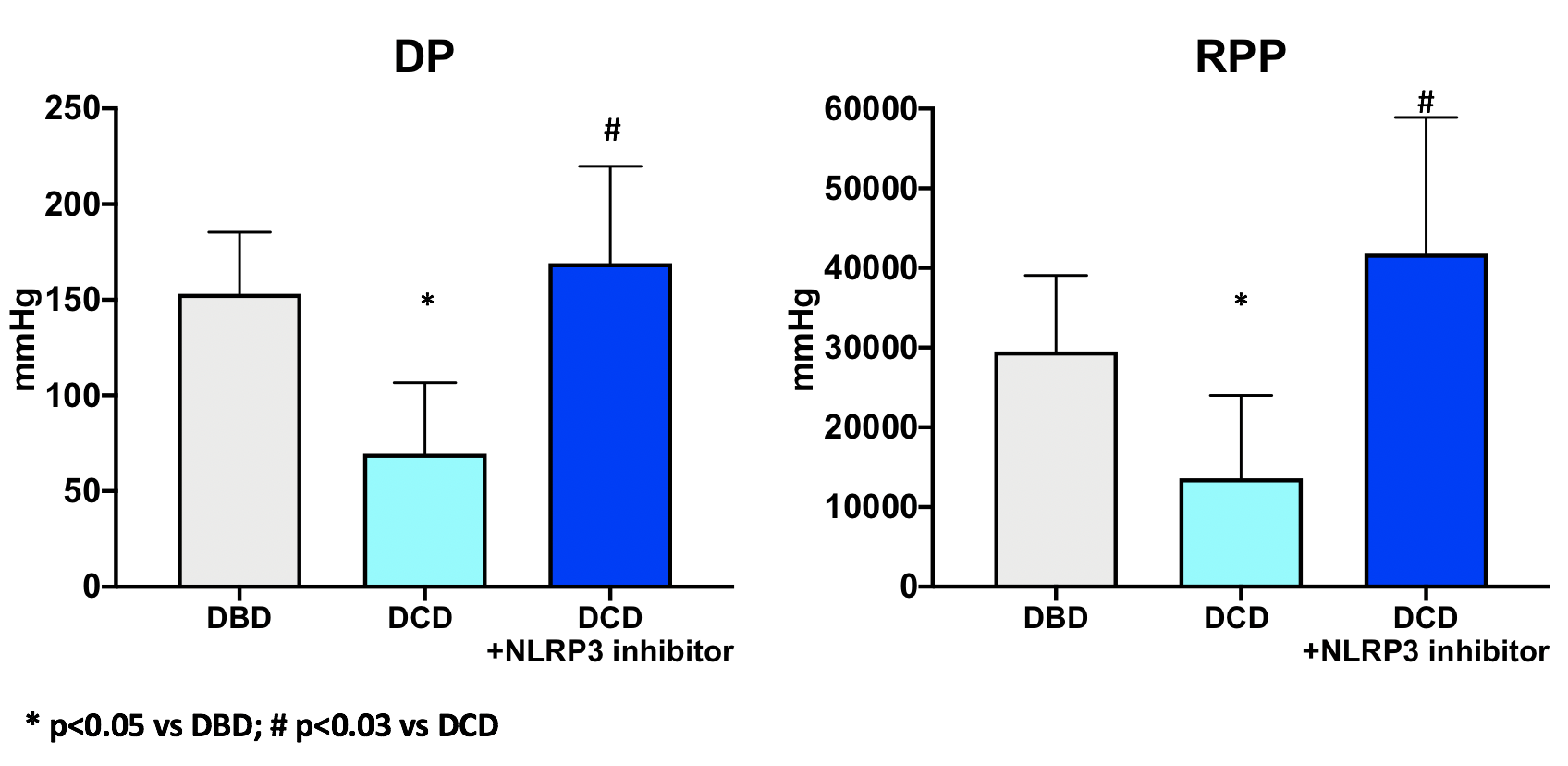Nlrp3 Inhibition Improves Heart Graft Function in Donation after Circulatory Death
Virginia Commonwealth University, Richmond, VA
Meeting: 2020 American Transplant Congress
Abstract number: D-290
Keywords: Donors, non-heart-beating, Inflammation, Ischemia, Preservation
Session Information
Session Name: Poster Session D: Ischemia Reperfusion & Organ Rehabilitation
Session Type: Poster Session
Date: Saturday, May 30, 2020
Session Time: 3:15pm-4:00pm
 Presentation Time: 3:30pm-4:00pm
Presentation Time: 3:30pm-4:00pm
Location: Virtual
*Purpose: Donation after circulatory death (DCD) donors have the potential to increase the number of transplantable hearts, which today relies only on donation after brain death (DBD) donors. The DCD process induces ischemia and reperfusion (I/R) injury, which precludes the clinical use of these heart. The NLRP3 inflammasome pathway is one of the major culprits of myocardial I/R injury. We hypothesized that NLRP3 inhibition in the DCD heart at time of procurement, combined with the inhibition in the recipient, improves DCD graft function 24 hours after transplantation.
*Methods: The DCD process was induced in rats that were anesthetized, intubated and ventilated. A paralytic agent (vecuronium bromide, 100 micrograms/kg) and heparin (1000 U/Kg) were administered intravenously, 5 minutes before removing the ventilatory support. The DCD heart was flushed with ice-cold cardioplegia solution supplemented or not with the NLRP3 inhibitor 16673-34-0 (50 microM), administered retrogradely through the aorta at the moment of procurement. Average time between ventilation withdrawal and the administration of cardioplegia (ischemic time) was 18 minutes. DBD hearts were arrested using ice-cold cardioplegia while the rat was ventilated, to minimize ischemia. The donor DBD or DCD hearts were heterotopically implanted in the abdomen of recipient rats. After 24 hours, the donor heart developed pressure (DP) and rate-pressure-product (RPP) were measured using a balloon-tipped catheter.
*Results: One third of the untreated DCD hearts were necrotic after 24 hr. The non-failing DCD hearts had significantly lower DP and RPP when compared to the DBD (Figure). None of the DCD hearts treated with the NLRP3 inhibitor failed at 24 hours. The NLRP3 inhibitor improved the DP and the RPP to the level of the DBD heart (Figure).
*Conclusions: DCD hearts suffer from low function and acute failure. The use of the NLRP3 inhibitor 16673-34-0 improves the survival and function of the DCD hearts.
To cite this abstract in AMA style:
Toldo S, Mezzaroma E, Quader M. Nlrp3 Inhibition Improves Heart Graft Function in Donation after Circulatory Death [abstract]. Am J Transplant. 2020; 20 (suppl 3). https://atcmeetingabstracts.com/abstract/nlrp3-inhibition-improves-heart-graft-function-in-donation-after-circulatory-death/. Accessed February 21, 2026.« Back to 2020 American Transplant Congress

